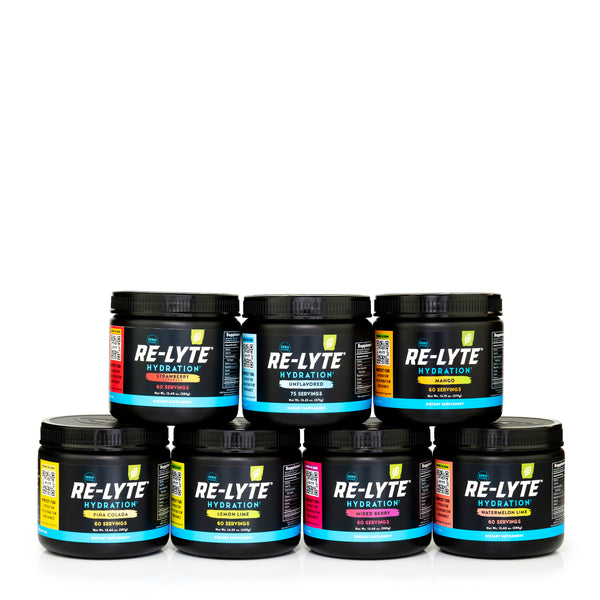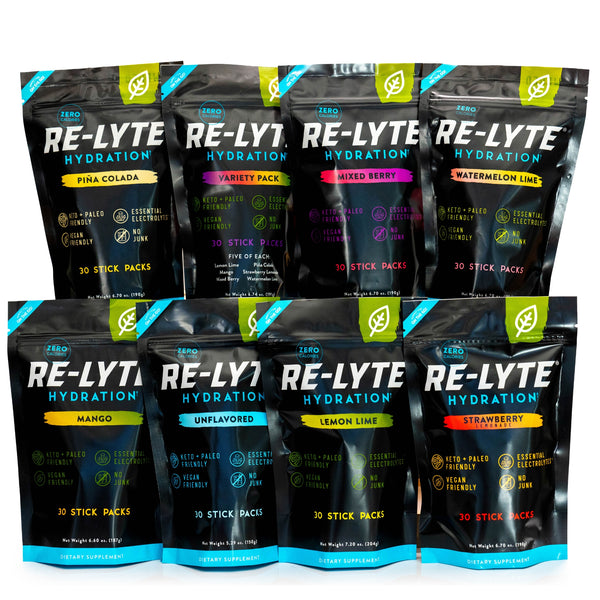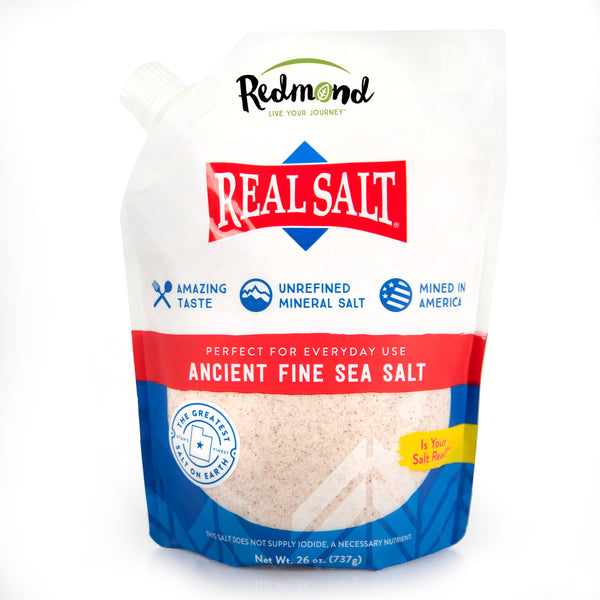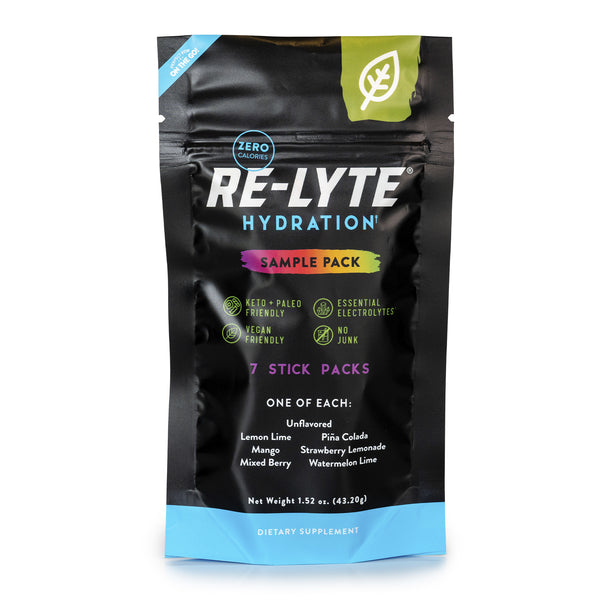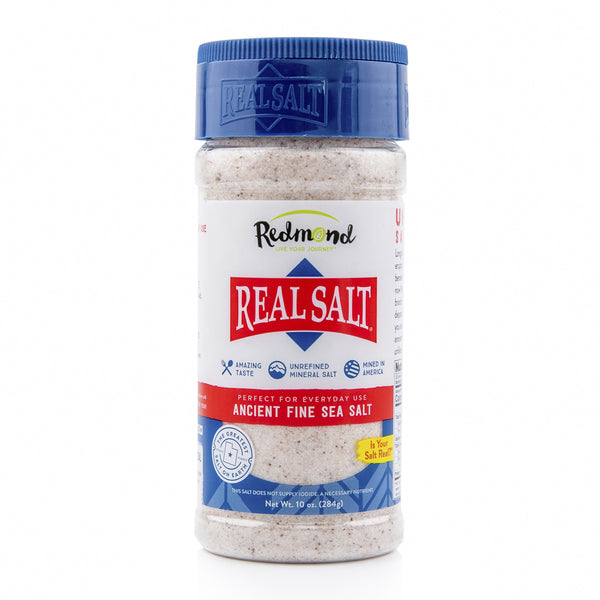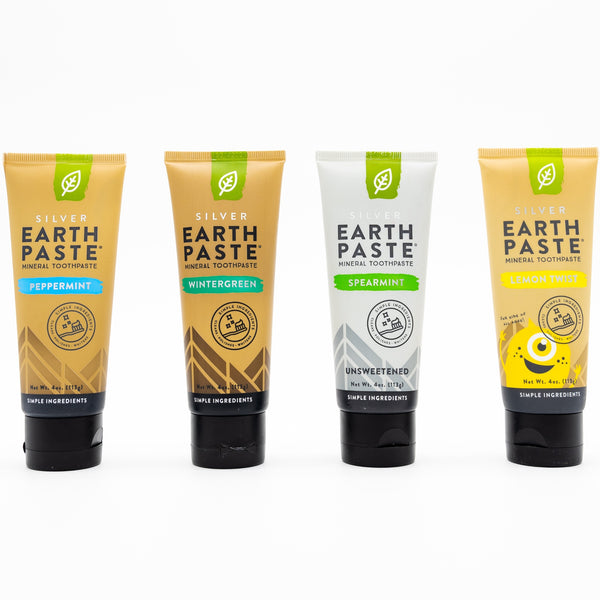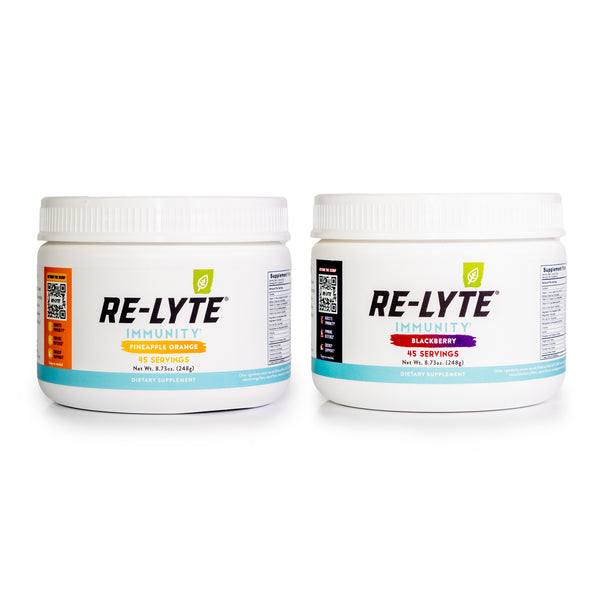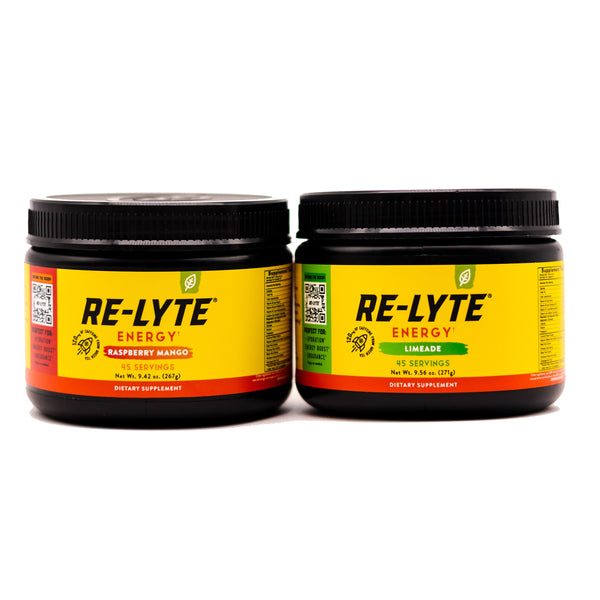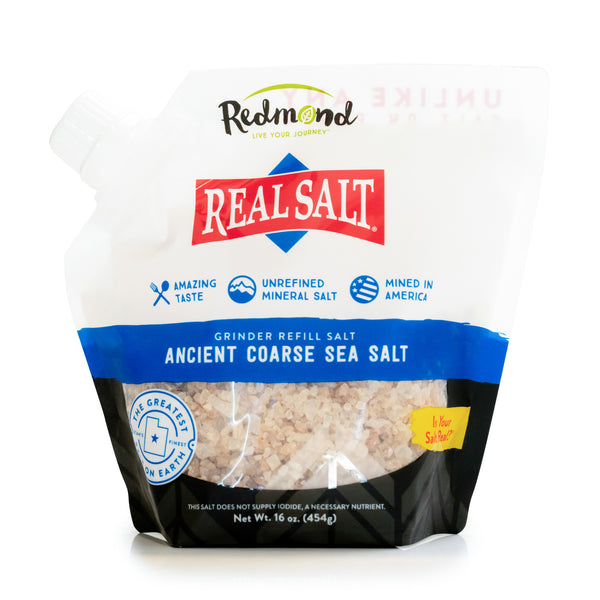How Much Water Do You Really Need?
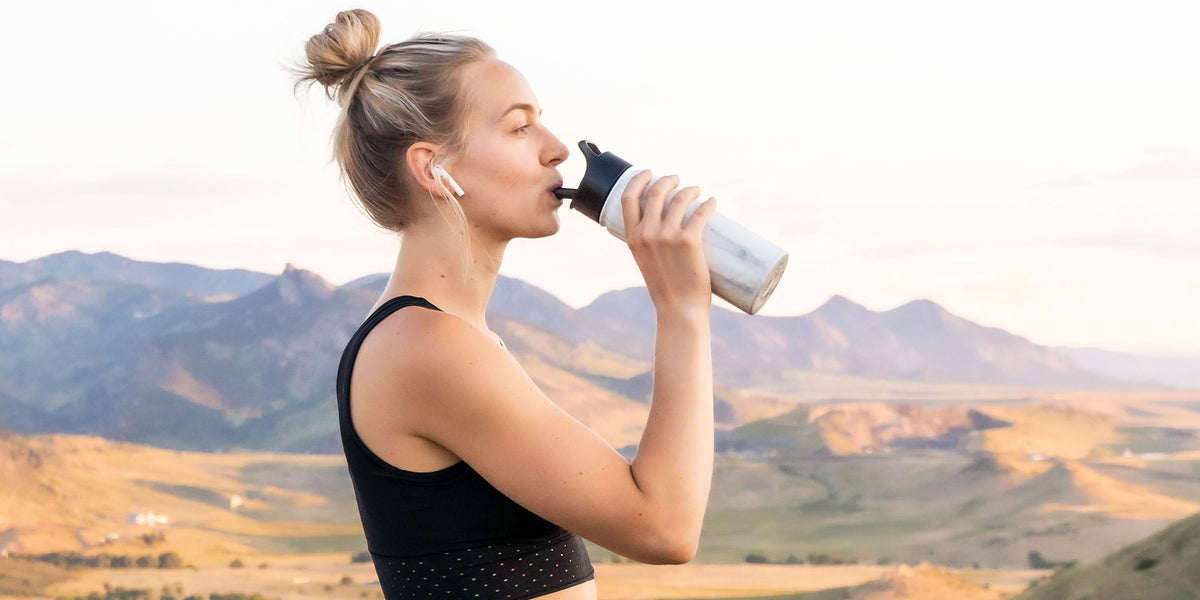
Article at a Glance:
- Getting your water intake just right is tricky, since dehydration and overhydration are both very real risks.
- The U.S. National Academies of Sciences, Engineering, and Medicine recommends healthy adults get between 11.5 and 15.5 cups of fluids per day.
- But you also need to consider individual factors like exercise habits, health, climate, and pregnancy when determining your hydration needs.
- Don’t forget to replenish electrolytes, since overhydration usually stems from not balancing electrolyte and water intake correctly.
There are a lot of big questions to ponder in life. What is the purpose of our existence? Do we have free will? What is consciousness? And for the love of Gilbert Gottfried, how much flippin’ water do we need to drink in a day?
That last one, just like those big philosophical questions, is one we’ve had a heck of a time answering with certainty. I’ve heard anything from “just drink when you’re thirsty,” to drink eight cups, to drink fifteen.
Honestly, I don’t love winging it on this one, and I’m guessing you don’t either. No one wants to end up feeling tired, dizzy, or worse due to dehydration. Then to make the whole situation extra tricky, there’s also the possibility of making yourself sick by drinking too much water.
A lot of people don’t know it’s possible to overhydrate, but it absolutely is. It’s called hyponatremia, and it happens when you drink so much water that it dilutes your sodium levels. Since sodium is crucial to proper cell function, this can trigger serious problems. People with hyponatremia can develop muscle cramps, muscle weakness, nausea, vomiting, lethargy, headaches, confusion, seizures, and even die.
The moral of the story? Getting your water intake just right is a bit like walking a tight rope in Disco-era platforms — especially when you don’t have clear guidelines to work with. If you drink too little, you end up dehydrated. If you drink too much, you put yourself at risk for hyponatremia. How do you find balance? These specific, scientifically-supported water intake guidelines should help.
Follow this Formula for Balanced Hydration
The kind, incredibly intelligent folks over at the U.S. National Academies of Sciences, Engineering, and Medicine have given us (probably) the best answer we’re ever going to get about how much water to drink….
If you’re a healthy adult living in a temperate climate you need to get about 15.5 cups (3.7 liters) of fluids per day if you’re a man and about 11.5 cups (2.7 liters) of fluids per day if you’re a woman.
Now, you may have noticed that these guidelines say “get” and not “drink.” And that they say “fluids” and not “water.” That’s because these are hydration guidelines, and hydration comes from more than just water.
About 20 percent of your daily hydration comes from food, and a lot of it will come from drinks besides water too, like milk, juice, and herbal teas. Even caffeinated drinks and soda contribute to your fluid intake somewhat (but we don’t recommend going hard on the sugary stuff).
So, if you’re supposed to get 15.5 cups of fluids per day and you get 20 percent of that from food, plus you also drink two cups of tea and a glass of juice in a day, that leaves you with a water goal of roughly 9.5 cups of water. Simple enough, right?
But before you get too excited about finally having a clear hydration goal, there are a few other factors you need to consider, like:
- How much you exercise. You lose fluids when you sweat, so the more you exercise, the more you need to drink. And don’t just wait until after a workout. Do it before and during too.
- The climate. If it’s hot or humid, you sweat more, so you need to drink more. High altitude drains your body’s fluids quicker too.
- Your health. Any condition that causes a fever, diarrhea, or vomiting drains your fluid supply quickly, so you need to drink more to compensate.
- Whether you’re pregnant or breastfeeding. Pregnant and breastfeeding women need more fluids because they’re providing hydration to a little human too.
All of these factors are so individualized that it’s hard to provide a blanket recommendation of how much you need to drink on top of the baseline we provided already. If you want certainty, you can always ask a doctor or dietitian to look at all the factors in your life and give you a solid, straightforward answer.
Or you can pay attention to your urine. If it’s completely clear, mellow out on your water consumption. If it’s light yellow, you’re right on track. If it’s dark yellow, amp up your water intake. You can also check out this article for more tips on getting your hydration levels just right. But one more thing before you go forth and hydrate….
Don’t forget about electrolytes. Hyponatremia happens when you drink too much water AND don’t balance it out with enough electrolytes, particularly sodium. So, make sure your healthy hydration plan includes sodium (and other electrolytes) too.
What’s the Best Way to Get Your Electrolytes?
There are a lot of ways to get electrolytes—sipping on coconut water, drinking bone broth, snacking on yogurt, bananas, and avocados. But do you want to know our admittedly biased but also totally wholehearted suggestion?
Try Redmond Re-Lyte Hydration.
It makes replenishing your electrolytes easy peasy. You don’t have to guess whether you’re getting enough electrolytes, because we got a group of leading health and fitness experts together and had them develop the ideal electrolyte blend (one that contains lots of natural sodium from our unrefined, ancient sea salt Real Salt). Here’s the exact electrolyte blend you’ll find in a serving of Re-Lyte:
- 810 mg of sodium
- 400 mg of potassium
- 1,280 mg of chloride
- 60 mg of calcium
- 50 mg of magnesium
- 80 mg of coconut water powder
- 60+ trace minerals
Re-Lyte’s great for anyone who works out hard and needs help hydrating. But it’s just as great for people who lead, busy demanding lives and don’t have time to start from square one with this whole hydration thing. Curious whether Re-Lyte’s right for you? Click the button below to learn more!
Sources:
- Water is essential to good health. Are you getting enough? These guidelines can help you find out— Mayo Clinic.
- Electrolyte Panel— Medline Plus.
- About Body Water— Merck Manual.
- Hyponatremia— Cleveland Clinic.
- Dehydration— Mayo Clinic.




